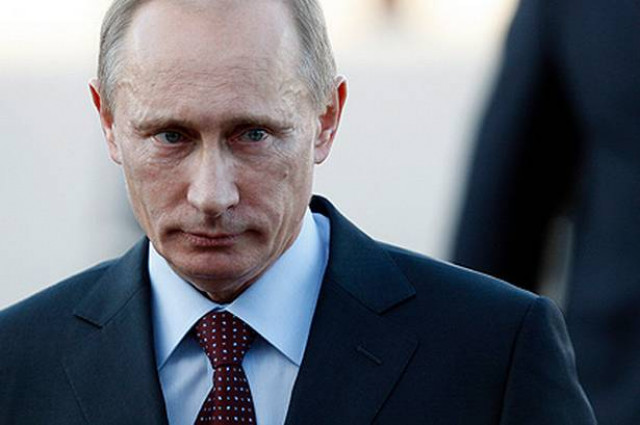
US charges that Russia is arming the Syrian government as it attacks its opponents with lethal force, and Moscow's blocking of tougher action against Damascus, appear to indicate that tough times are ahead for Putin's relationship with Obama and, perhaps, his successor.
The fiercely nationalist Putin, who re-assumed the Russian presidency, last month, is due to meet Obama at a G20 summit in Mexico early next week, their first encounter in three years.
There is growing scepticism the two men can find common ground on Syria or other festering disputes.
Obama has touted the "reset" of relations with Russia, which came during the term of Putin predecessor Dmitry Medvedev, as one of his signature foreign policy achievements.
But Washington finds itself increasingly at odds with Moscow on issues from Syria and Iran to missile defense and human rights. Putin shows no sign of backing away from the anti-Western rhetoric and positions that have long been his hallmark.
That could set the stage for an uncomfortable meeting in Los Cabos, Mexico.
"The point is to break the ice, score a few political points but not have any kind of diplomatic blow-up in the process," said Matthew Rodansky, a Washington-based Russia expert at the Carnegie Endowment for International Peace.
Syria Tops Agenda
How Obama and Putin address Syria - both behind closed doors and in front of the cameras - will be critical.
Syria poses a test of how far Obama will risk antagonizing Russia by pushing it to abandon embattled Syrian President Bashar al-Assad, a longtime ally and arms customer.
Obama already faces criticism from Republicans – including presumptive presidential nominee Mitt Romney - over his "reset" policy with Russia.
In recent days, it has been Secretary of State Hillary Clinton, rather than Obama personally, who has spearheaded the US pressure campaign against Russia.
In an unusually direct rebuke, she voiced concern on Tuesday that Moscow was sending attack helicopters to Syria and dismissed as "patently untrue" Russian denials that its weapons were being used in the conflict.
Dimitri Simes, head of the National Interest think-tank in Washington, said harsh rhetoric could backfire by pushing Moscow into a corner and making it even less cooperative. "This is not the way you normally talk about your partner," he said.
Obama may seek to lower the temperature with Putin but he is also expected to be assertive enough to avoid giving Republican foes fresh ammunition to accuse him of appeasing Moscow.
Putin will be in no mood for concessions that could be seen as a sign of weakness as he seeks to quell dissent at home with tactics that are drawing US criticism.
He also will be wary of any concrete commitments to an American president whose political future remains uncertain beyond the fall, Kremlin watchers say.
At the heart of Putin's refusal to budge on Syria is resentment over what he charges was NATO overstepping its UN mandate in Libya last year with a bombing campaign that helped oust Muammar Gaddafi. His suspicion is that giving ground again would open the way to regime change in Damascus, dealing a blow to Russia's interests in the region.
From Putin to ... Putin
On a personal level, there is reason to doubt whether "No-Drama" Obama and brash, macho-talking Putin will click.
After US-Russian relations soured at the end of his predecessor's term, Obama adopted a more pragmatic approach.
He pushed through a series of deals to reduce US and Russian nuclear weapons arsenals, allow Moscow to join the World Trade Organization and secure supply routes through Russia for NATO forces fighting in Afghanistan.
The close, businesslike partnership that Obama forged with Medvedev, a mild-mannered technocrat handpicked by Putin to succeed him as president in 2008, helped ease the way.
But it was also clear to Washington that Putin, who nominally became prime minister at the time, was the "Alpha dog" of Russia's ruling tandem and the reset would not have been possible without him backing it from behind-the-scenes.
Now Putin has begun another six-year presidential term and is again Russia's chief interlocutor with the United States – a role he pointedly underscored in snubbing a G8 summit hosted by Obama less than two weeks after he was sworn in.
The tough foreign policy statements Putin has issued since his inauguration, including his insistence that Moscow will not tolerate interference in its affairs and a demand for binding guarantees on any anti-missile system, could foreshadow what Obama will face if he wins a second term.
Obama got a taste on his first trip to Russia in July 2009.
White House aides had hoped the secluded setting of Putin's forested estate outside Moscow would let the two men size each other up without posturing for the cameras. But even behind closed doors, Putin was determined to test the young American president, according to insiders' accounts of the meeting.
Putin’s Monologue
For nearly an hour, Putin ticked off a long list of Russian complaints almost without interruption, touching on everything from missile defense to the US invasion of Iraq to perceived missteps in the post-Sept. 11 fight against militancy.
Obama listened patiently and when Putin's monologue was over he asked that they extend the meeting and work to find a path towards improved relations.
The warming trend set in motion during Obama's Russia trip three years ago has since run its course.
But White House deputy national security adviser Ben Rhodes dismissed the notion that Putin's hardened rhetoric signalled a desire to reverse the diplomatic gains of the reset, suggesting instead that he was playing to his political base.
"Putin was speaking to that streak of Russian nationalism that's very much in line with his political identity," Rhodes said in a recent interview.
But strains have deepened as NATO pushes ahead with missile defense in Europe, which Putin says would hurt Russia's strategic deterrence despite Washington's assertion that it is meant to protect against an Iranian missile threat.
Obama was caught on camera in March asking Medvedev to assure Putin he would have "more flexibility" on such issues after the November election - to which Medvedev responded that he would "transmit this information to Vladimir."
The potential consequences for Russia relations if Obama loses in November will not be lost on Putin since Romney has called Russia an "enemy."
US Senator John McCain, a harsh critic of Obama's Russia policy, said the president's outreach had only emboldened Putin to keep supplying arms to Assad's forces while cracking down on democracy protesters at home and that the Los Cabos meeting was not likely to change that dynamic.
"The president has shown his naiveté," McCain told Reuters.
An escalating crisis in Syria, echoing with Cold War-style recriminations, has badly frayed US-Russian relations at a delicate time, just as US President Barack Obama and Russian President Vladimir Putin try to renew their relationship.
US charges that Russia is arming the Syrian government as it attacks its opponents with lethal force, and Moscow's blocking of tougher action against Damascus, appear to indicate that tough times are ahead for Putin's relationship with Obama and, perhaps, his successor.
The fiercely nationalist Putin, who re-assumed the Russian presidency, last month, is due to meet Obama at a G20 summit in Mexico early next week, their first encounter in three years.
There is growing scepticism the two men can find common ground on Syria or other festering disputes.
Obama has touted the "reset" of relations with Russia, which came during the term of Putin predecessor Dmitry Medvedev, as one of his signature foreign policy achievements.
But Washington finds itself increasingly at odds with Moscow on issues from Syria and Iran to missile defense and human rights. Putin shows no sign of backing away from the anti-Western rhetoric and positions that have long been his hallmark.
That could set the stage for an uncomfortable meeting in Los Cabos, Mexico.
"The point is to break the ice, score a few political points but not have any kind of diplomatic blow-up in the process," said Matthew Rodansky, a Washington-based Russia expert at the Carnegie Endowment for International Peace.
Syria Tops Agenda
How Obama and Putin address Syria - both behind closed doors and in front of the cameras - will be critical.
Syria poses a test of how far Obama will risk antagonizing Russia by pushing it to abandon embattled Syrian President Bashar al-Assad, a longtime ally and arms customer.
Obama already faces criticism from Republicans – including presumptive presidential nominee Mitt Romney - over his "reset" policy with Russia.
In recent days, it has been Secretary of State Hillary Clinton, rather than Obama personally, who has spearheaded the US pressure campaign against Russia.
In an unusually direct rebuke, she voiced concern on Tuesday that Moscow was sending attack helicopters to Syria and dismissed as "patently untrue" Russian denials that its weapons were being used in the conflict.
Dimitri Simes, head of the National Interest think-tank in Washington, said harsh rhetoric could backfire by pushing Moscow into a corner and making it even less cooperative. "This is not the way you normally talk about your partner," he said.
Obama may seek to lower the temperature with Putin but he is also expected to be assertive enough to avoid giving Republican foes fresh ammunition to accuse him of appeasing Moscow.
Putin will be in no mood for concessions that could be seen as a sign of weakness as he seeks to quell dissent at home with tactics that are drawing US criticism.
He also will be wary of any concrete commitments to an American president whose political future remains uncertain beyond the fall, Kremlin watchers say.
At the heart of Putin's refusal to budge on Syria is resentment over what he charges was NATO overstepping its UN mandate in Libya last year with a bombing campaign that helped oust Muammar Gaddafi. His suspicion is that giving ground again would open the way to regime change in Damascus, dealing a blow to Russia's interests in the region.
From Putin to ... Putin
On a personal level, there is reason to doubt whether "No-Drama" Obama and brash, macho-talking Putin will click.
After US-Russian relations soured at the end of his predecessor's term, Obama adopted a more pragmatic approach.
He pushed through a series of deals to reduce US and Russian nuclear weapons arsenals, allow Moscow to join the World Trade Organization and secure supply routes through Russia for NATO forces fighting in Afghanistan.
The close, businesslike partnership that Obama forged with Medvedev, a mild-mannered technocrat handpicked by Putin to succeed him as president in 2008, helped ease the way.
But it was also clear to Washington that Putin, who nominally became prime minister at the time, was the "Alpha dog" of Russia's ruling tandem and the reset would not have been possible without him backing it from behind-the-scenes.
Now Putin has begun another six-year presidential term and is again Russia's chief interlocutor with the United States – a role he pointedly underscored in snubbing a G8 summit hosted by Obama less than two weeks after he was sworn in.
The tough foreign policy statements Putin has issued since his inauguration, including his insistence that Moscow will not tolerate interference in its affairs and a demand for binding guarantees on any anti-missile system, could foreshadow what Obama will face if he wins a second term.
Obama got a taste on his first trip to Russia in July 2009.
White House aides had hoped the secluded setting of Putin's forested estate outside Moscow would let the two men size each other up without posturing for the cameras. But even behind closed doors, Putin was determined to test the young American president, according to insiders' accounts of the meeting.
Putin’s Monologue
For nearly an hour, Putin ticked off a long list of Russian complaints almost without interruption, touching on everything from missile defense to the US invasion of Iraq to perceived missteps in the post-Sept. 11 fight against Islamist militancy.
Obama listened patiently and when Putin's monologue was over he asked that they extend the meeting and work to find a path toward improved relations.
The warming trend set in motion during Obama's Russia trip three years ago has since run its course.
But White House deputy national security adviser Ben Rhodes dismissed the notion that Putin's hardened rhetoric signalled a desire to reverse the diplomatic gains of the reset, suggesting instead that he was playing to his political base.
"Putin was speaking to that streak of Russian nationalism that's very much in line with his political identity," Rhodes said in a recent interview.
But strains have deepened as NATO pushes ahead with missile defense in Europe, which Putin says would hurt Russia's strategic deterrence despite Washington's assertion that it is meant to protect against an Iranian missile threat.
Obama was caught on camera in March asking Medvedev to assure Putin he would have "more flexibility" on such issues after the November election - to which Medvedev responded that he would "transmit this information to Vladimir."
The potential consequences for Russia relations if Obama loses in November will not be lost on Putin since Romney has called Russia an "enemy."
US Senator John McCain, a harsh critic of Obama's Russia policy, said the president's outreach had only emboldened Putin to keep supplying arms to Assad's forces while cracking down on democracy protesters at home and that the Los Cabos meeting was not likely to change that dynamic.
"The president has shown his naiveté," McCain told Reuters.


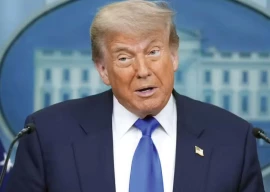




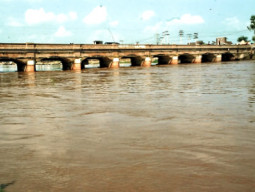
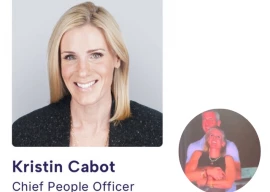

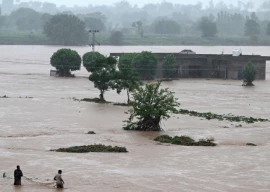
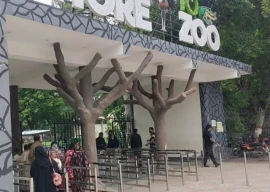






COMMENTS
Comments are moderated and generally will be posted if they are on-topic and not abusive.
For more information, please see our Comments FAQ